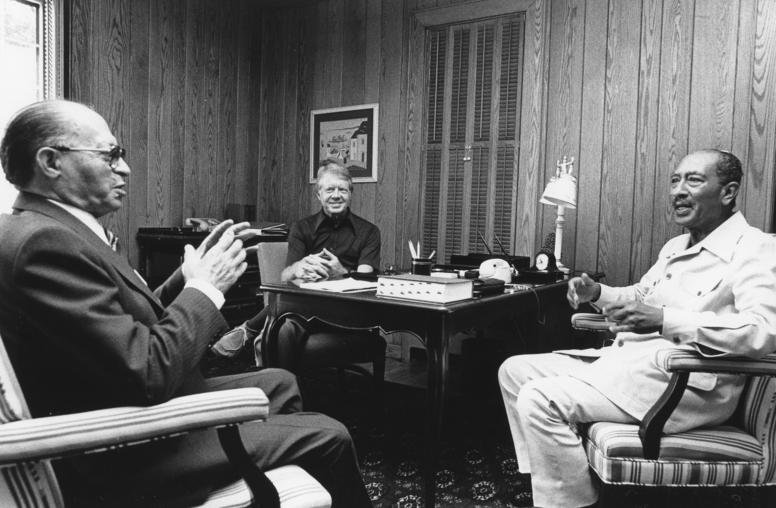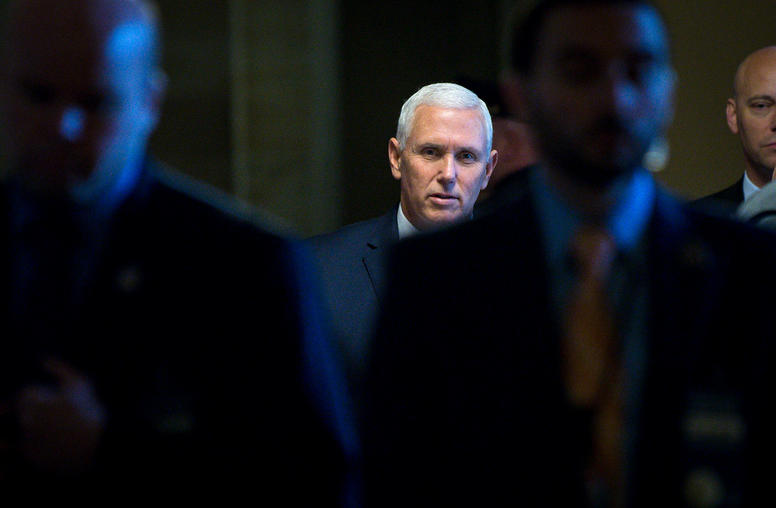Publications
Articles, publications, books, tools and multimedia features from the U.S. Institute of Peace provide the latest news, analysis, research findings, practitioner guides and reports, all related to the conflict zones and issues that are at the center of the Institute’s work to prevent and reduce violent conflict.

Lucy Kurtzer-Ellenbogen on the Latest with the Israeli-Palestinian Conflict
As Israel appears headed for another election, the U.S. has reversed its long-standing position on the legality of Israeli settlements. The decision, according to USIP’s Lucy Kurtzer-Ellenbogen, “comes after a long stream of events that’s made the possibility of bringing the parties back to the table extremely hard to imagine.”

Lucy Kurtzer-Ellenbogen on the Egypt-Israel Peace Treaty 40 Years Later
Reflecting on the 40th anniversary of the Egypt-Israel peace treaty, Kurtzer-Ellenbogen says, “One of the big factors with the Egypt-Israel agreement was … bold, courageous leadership that was willing to make unprecedented moves … That’s of course eventually what’s going to need to happen to come to an agreement between the Israelis and Palestinians.”

Middle East Peace: What can we Learn from Camp David 40 Years Later?
March 26 marks the 40th anniversary of the signing ceremony of the Egypt-Israel peace treaty that resulted from the Camp David Accords. Negotiated by Israeli Prime Minister Menachem Begin, Egyptian President Anwar Sadat and U.S. President Jimmy Carter, the treaty has been a cornerstone of regional security and U.S. strategy in the Middle East.

Lucy Kurtzer-Ellenbogen on the Warsaw Conference
Last week’s U.S.-led Warsaw Conference brought together more than 60 countries to discuss peace and security challenges in the Middle East. The conference underscored U.S.-European tensions over Iran

Lucy Kurtzer-Ellenbogen on the Tumult Between Israelis and Palestinians
A confluence of factors this week led to heightened tensions in Israel and the Palestinian territories. Israel celebrated its 70th anniversary, the United States officially moved its embassy to Jerusalem, and protests in Gaza led to levels of violence not seen in several years. Lucy Kurtzer-Ellenbogen shares her analysis and discusses the perfect storm of events leading to the tumult between Israelis and Palestinians and explains why Middle East peace remains a generational goal.

Jerusalem, Gaza, and the Unclear Road to Peace
This week, a perfect storm of politics, mounting despair, and competing narratives of historic memory and grievances converged in Jerusalem and Gaza. The effects have been devastatingly deadly. The implications for Israeli-Palestinian peace are profound.

Lucy Kurtzer-Ellenbogen on Prime Minister Netanyahu's Visit to the U.S.
This week in Washington, Prime Minister Netanyahu successfully shifted the optics from mounting domestic pressure. Lucy Kurtzer-Ellenbogen shares her analysis about Netanyahu’s warm reception at the AIPAC conference and his White House meeting focused on Iran. The conversation continues with Kurtzer-Ellenbogen explaining the latest hurdles for Middle East Peace and the anticipation for the Trump administration’s Middle East Peace Plan.

As Vice President Pence Visits the Middle East, Hopes for Diplomacy Languish
Vice President Mike Pence heads to Egypt, Jordan and Israel with little diplomatic quiet, and even less hope, on the Israeli-Palestinian front. President Abbas has declared the Oslo peace process dead, and the U.S. mediating role over, President Trump has broken with international consensus on Jerusalem, and pointedly not endorsed a two-state solution since coming to office, and Prime Minister Netanyahu has now hedged on his commitment to the end goal of a Palestinian state.

What Does President Trump’s Decision on Jerusalem Mean for Israeli-Palestinian Peace?
Today, President Trump—for the second time while in office—exercised his waiver authority on the 1995 Jerusalem Embassy Act. The law calls for the United States Embassy, currently located in Tel Aviv, to be moved to Jerusalem, in recognition of that city as Israel’s capital. The choice to waive enactment in the name of national security interests hits the president’s desk every six months and, beginning with President Clinton in 1998, has been continuously exercised by each president. But this time was different.